
Discover more from The Cottage
Well, it is that season again. In my suburban neighborhood, skeletons are frolicking on lawns. I can’t say that I love it. This yearly, bone-y celebration of decay and death - from Halloween through the Day of the Dead - freaks me out more than a little.
In Freeing Jesus, I wrote about my childhood angularity of living in a world shaped by the futuristic hopes of The Jetsons and Star Trek with the terror-inducing nightly prayer of the New England Primer:
Now I lay me down to sleep,
I pray thee, Lord, my soul to keep;
If I should die before I wake,
I pray thee, Lord, my soul to take.
I never found these words comforting. Even as a child they raised deep existential dread regarding death. And it wasn’t just those words. My household was haunted by death. My father’s mother had died when he was a little boy. His father, bereft with grief and unable to care for three small sons, abandoned my father and his younger brother to an orphanage where both were psychologically and physically abused. Maternal death was a ghostly presence in our family, a trauma of which we spoke only in whispers. No one had to teach me to fear death. I was born into it, understanding that death is truly an ending, the destruction that stalks us all, and that decay is truly a stench.
While I vaguely get the cheeky mockery of death at Halloween, with the neighborhood parade of bones, it also takes me back to how my father’s childhood suffering - and the death of a parent - shaped the multi-generational pain of my extended family. Halloween isn’t fun. For me, it re-enacts familial trauma of loss. Death stinks.
When a publisher asked me to review Mallory McDuff’s upcoming book, Our Last Best Act: Planning for the End of Our Lives to Protect the People and Places We Love, I winced a little. The last thing I wanted to do was read a book about planning for death. When I finally picked it up, however, I was taken by her ease with the subject. Her capacity to turn personal grief into hope, things we don’t want to say into things that matter, and fear toward justice surprised me. She took me on a non-gruesome pilgrimage of bodily-ness, reminding me of the Christian call to honor bodies and save bodies - all the while linking her work to the most significant threat of our day, the climate crisis. She opened a window for me on my own fear of death, and introduced me to a way of engaging death that isn’t hypothetical or some theological theory, but an actual earthy, grounded, and practical path of doing good even with our last breath.
I hope this season of skeletons will cause you to reflect not just on death as a scary and unspeakable ending, but on how our last best acts can make the world a better place for those we leave behind. We can do justice even as we die, and know that decay rebirths creation.
What will your last best acts be?
Today, The Cottage hosts a guest post by Professor McDuff, an excerpt from Our Last Best Act, and a six-minute selection from my recent conversation with her for you to listen in.
This selection is from a longer 50-minute podcast at The Secret Garden, the private podcast hosted here at The Cottage:
The Secret Garden is for those who support The Cottage financially. To hear the entire podcast, I invite you to upgrade to a paid subscription by clicking on the button below - and join us on the other side of the Cottage’s picket fence! (I dislike the term “paywall”!) Monthly subscription is $5 month or (get two months free!) $50 for a year. You’ll have access to all past podcasts and ZOOM recordings as well as upcoming events.
If you can’t afford a subscription, I promise: No one is ever excluded for lack of funds! Just reply to this email (by hitting your reply button) as you would any email and let me know. Subscriptions aren’t meant to bar anyone (hence my dislike of “paywall”) but to provide a way for readers to support me and my work.
THE FULL PODCAST WITH MALLORY MCDUFF will release on October 20 at noon (eastern) and will be sent directly to your email.
GUEST POST
Today’s guest essay comes from Mallory McDuff, an on-the-ground chronicler of and participant in faith movements addressing the climate crisis. She teaches environmental education at Warren Wilson College in Asheville, NC. In addition to her upcoming Our Last Best Act, she is the author of Natural Saints (2010) and Sacred Acts (2012) and has published essays in The New York Times, The Washington Post, USA Today, The Rumpus, Sojourners, and more.
PLANNING FOR DEATH, THE LAST BEST ACT
Fifteen years after my parents’ sudden deaths, I opened the file cabinet in my bedroom and took out the folder containing my will, cremation directive, and advance care directive, which I hadn’t touched in more than a decade. It was like trying on a pair of jeans from high school. My sister was listed as the health care power of attorney, although she’d moved from nearby Atlanta to Seattle. I’d completely forgotten my instructions for a party after my funeral with beer and barbeque from Okie Dokie’s Smokehouse, a restaurant I loved when my young children needed a quick fix of mac and cheese and ribs on a school night (It claimed to offer “swine dining.”)
Since that time, my two daughters had grown from toddlers to teens, and my hair had turned a soft grey like my mother’s. Nearly a decade earlier, I’d opted for cremation for its cost and convenience, but my research had taught me about the fossil fuels needed to burn a body for several hours into a neat bag of ashes and pulverized bones. The ease of cremation still appealed to me, but I’d learned about more sustainable choices to leave the Earth in the same way I’d tried, however imperfectly, to live on. As I held the documents, I saw the possibility of planning for death as my last best act for my children in a warming world threatened by more severe disasters, from blazing wildfires to destructive hurricanes. My goal was to revise my final wishes with climate and community in mind.
My father had an affordable natural burial by reading the fine print of the contract from his local cemetery, which didn’t require embalming or a vault (in fact, embalming isn’t required in any state). During my research, I would discover options I didn’t know existed in my home in Western North Carolina: conservation cemeteries, green burial in local cemeteries, aquamation or water cremation, human composting, body farms, end-of-life doulas, and even home funerals.
When I told my 21 and 14-year olds about the option of keeping my body at home for one or two days, they weren’t exactly supportive.
“I will sleep in a Motel 6 if that happens,” said my youngest. “I can pay for it myself!”
My year-long journey to explore choices for the disposition of my body would involve my two children who would ultimately care for me after death. They couldn’t imagine spending a day in the presence of my dead body, but I knew the healing power of that connection from my experience with my father, whose body I prepared for burial. During our small but meaningful lives, we were in this together, for now and evermore.
(Adapted from Our Last Best Act, by Mallory McDuff; please pre-order her book.)
INSPIRATION
“I love autumn,” Emily said to me. “It wins you over with its mute appeal to sympathy for its decay.”
― Nicholas Sparks
Once, many grey autumns ago, I came upon a tree. The tree, a poplar, had dropped all of its leaves but for one, just one. Exactly one leaf remained near the topmost part of the tree, fluttering in the breeze like a little reddish-brown flag. All of the other leaves lay about the ground or had blown away.
I stopped and looked and marveled at the sight. . . I felt an instant kinship with the one leaf. I admired its stubbornness. I spoke quietly to it, “Hang on. Never give up. Don’t let go!”
I gazed at the last leaf for a time, though I did not stay to witness its falling. I did not want to witness its falling. The leaf was not ready to let go and drop silently to the ground, and neither was I—though I knew we both would, in time, let go.
I praised the last leaf on that autumn day many years ago, when I was still young. I walked on and slowly, imperceptibly, a sense of calm came over me. A sense of acceptance. A sense of peace.
The exuberance of summer is gone. Grand plans and high hopes give way to chilly reality. We loved as best we could, we’ve reaped as much as we could, we’ve traveled life’s journey as far as we could. We count our blessings and our losses. All leaves must fall.
— David M. Horst
Tranquility at length, when autumn comes,
Will lie upon the spirit like that haze
Touching far islands on fine autumn days
With tenderest blue, like bloom on purple plums;
Harvest will ring, but not as summer hums,
With noisy enterprise–to broaden, raise,
Proceed, proclaim, establish: autumn stays
The marching year one moment; stills the drums.
Then sits the insistent cricket in the grass;
But on the gravel crawls the chilly bee;
And all is over that could come to pass
Last year; excepting this: the mind is free
One moment, to compute, refute, amass,
Catalogue, question, contemplate, and see.
— Edna St. Vincent Millay
If you don’t yet receive The Cottage by email, you can:
Or, if you are on the free list and would like to hear The Secret Garden private podcast and participate in ZOOM to the The Cottage, please do so here:
As always, THANK YOU for your generosity spending time with my words. However you arrive, you are welcome at The Cottage!
OPPORTUNITIES
Two upcoming learning opportunities for you:
WRITING FOR YOUR LIFE, FALL ONLINE CONFERENCE
Writing in the Second Half of Life
November 8 - 12, with recordings available for 3 months
From the website: Are you thinking about a “second career” in writing? Many pastors and lay people feel this calling. We would like to help you make the transition! Writing for Your Life invites you to our Fall 2021 Online Conference “Writing in the second half of life” featuring authors Diana Butler Bass, Patricia Raybon, Marilyn McEntyre, Wes Granberg-Michaelson, Bruce Reyes-Chow, Erin Healy, Victoria McAfee, andKaya Oakes.
For info and registration, click HERE.
* * * * *
SOUTHERN LIGHTS 2022
A January Adventure in Progressive Christianity
January 14 -16, 2022
On-site, in-person, vaccination-required event on St. Simons Island, GA
What happens when Brian McLaren and I adopt a beloved event that’s been going for 17 years? We’re re-creating and curating a learning community focussed on strengthening Southern progressive Christianity!
And we invited Anthea Butler, Kaitlin Curtice, and Ken Medema to join us for the adventure. Southern Lights hosts inspiring teachers and joyous music that speak to the concerns of faith and social justice at this important juncture of American history and southern life. This year’s overall theme is “stories that can change everything.” Because southerners love stories. And we know stories matter.
There are only about 100 tickets still available. Please join us. CLICK HERE.

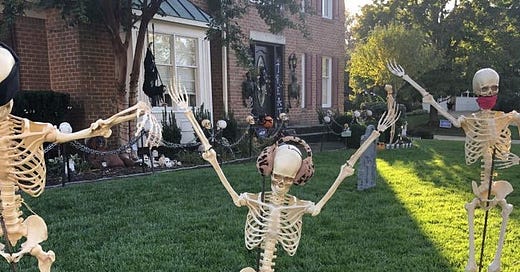




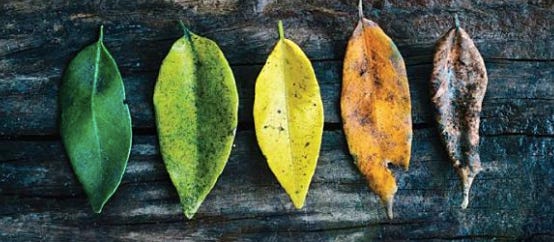
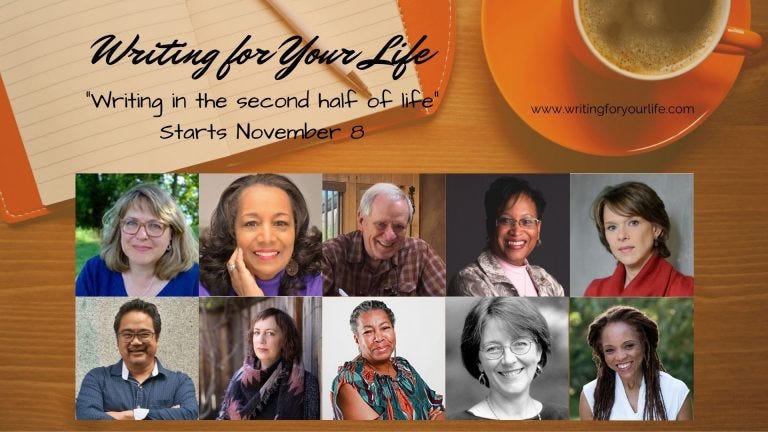

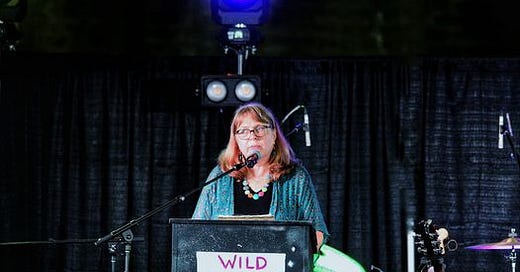



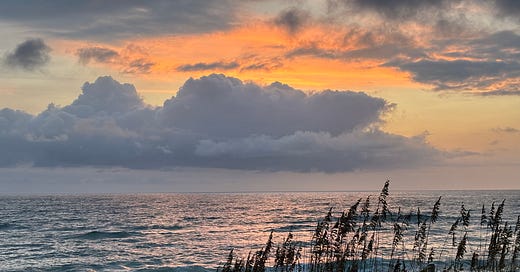

Preparing is so important. A will, trusts, clear instructions regarding power of attorney are all so important. My wife and I have also prepaid our final arrangements. We did that years ago. We've consolidated our assets within one financial institution and provided a list of all needed passwords and their accounts to our son who is the executor. I do hope that we are able to gift much of our 'stuff' soon (we are working on this) as none of our millennial children want to be burdened with cleaning out our house. We have advance directives and they are on file. We've always taken a pretty matter-of-fact approach to this topic which helps. But we don't do the whole skeleton thing. Much more into fall decorations - though I appreciate the more traditional aspects of the Dia de Los Muertos and, in particular, the mass (though I'm not Catholic).
Take it a step further to also plan after death care! After the experience of doing a home funeral for my Mom, I will never do otherwise. An intimate, loving experience with no funeral home involved. Some friends and I who had this experience started a group to help others do the same here in Maine. www.lastthings.net has everything on it you need to know to do a home funeral here. My family story is posted there. Others provide such resources in other states. Check out www.funerals.org for the national network for advocacy and education.